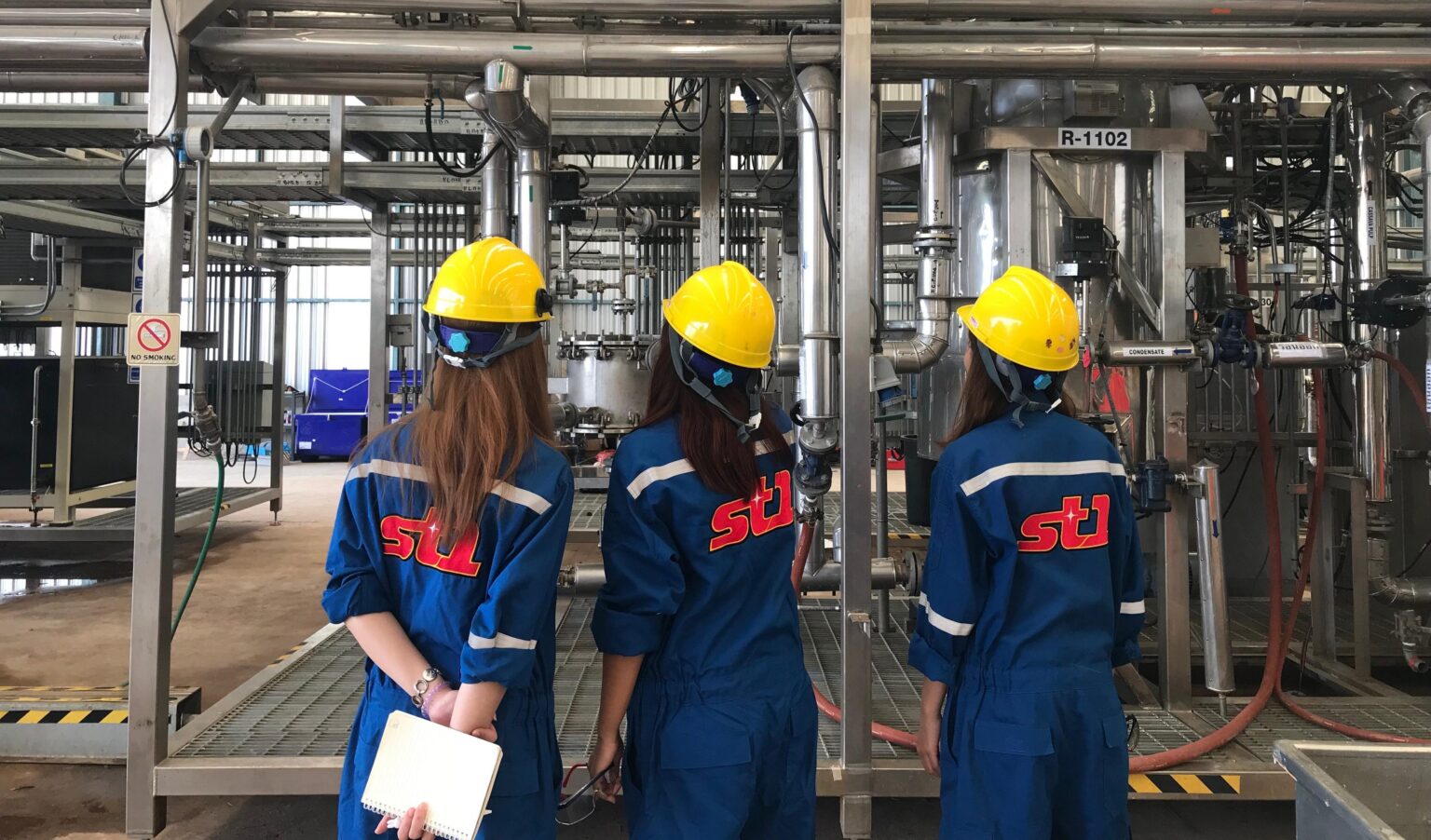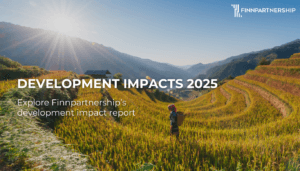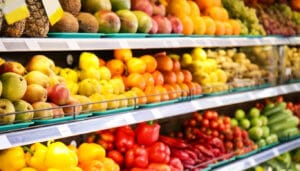Demand for renewable energy is growing rapidly in developing countries

Providing everyone in the world with sustainable and affordable energy is a huge challenge. Four businesses that have received Finnpartnership’s Business Partnership Support explain the solutions they can offer for the growing energy needs in developing countries.
In the 2030 Agenda for Sustainable Development, the countries of the world commit to promoting sustainable development. One of the goals (Goal 7) is to ensure access to affordable, reliable and sustainable energy for all by 2030.
With one and a half billion people still living without electricity, the challenge is enormous. In addition to reducing emissions that cause climate change, people everywhere need to quicker replace fossil fuels with renewable energy. Many Finnish companies have taken up the challenge because Finland has a lot of expertise in using emission-free solar power and sustainably grown biomass for energy production.
Four companies that have received Finnpartnership’s Business Partnership Support describe how they are helping to achieve global energy goals while creating business opportunities for themselves in the fast-growing markets in developing countries.
Emission-free solar energy
In Finland, the power grid covers almost 100 percent of all households, but in Africa, laying power cables to all rural villages is simply not realistic. However, decentralised energy generation enables residents in remote areas to have lights at home and to power their mobile phones.
The Finnish company SLA Innovative Energy Solutions provides this kind of solution and supplies and installs solar power systems in Somaliland. “A large number of our customers are poor people who live in rural areas,” says the company’s Managing Director, Leila Omar.
The Horn of Africa is one of the sunniest regions in the world, but most of the power is generated using expensive and polluting diesel. Leila Omar and her husband Mika Häikiö saw a potential business opportunity in solving this problem. The company has operated in Somaliland for three and a half years, and it supplies solar power systems to a wide range of customers, such as energy-intensive companies and farmers who need power to run water pumps.
Another important group of customers is telecom operators who need solar power for their mobile network base stations.
Poor villagers as customers
SLA also operates in remote rural villages, where the company builds solar power plants and provides energy as a service to residents for a monthly fee. “This way, poor villagers do not need to make big initial investments to gain access to affordable and reliable energy,” says Leila Omar.
The company also sells small solar power systems to customers in the countryside, providing enough power to light homes and charge mobile phones. People pay a small initial fee for the equipment, and the rest is paid in instalments. “Paying in instalments allows people to buy a better quality system that will last much longer compared to cheaper equipment. The two-year warranty that we grant to our equipment also gives our customers extra security.”
The Somaliland region is poor, but it is exceptionally stable and peaceful compared to the rest of the Horn of Africa. “The operating environment is challenging, but companies in other sectors than the energy sector should have the courage to seek business opportunities in Somaliland. The key issue is commitment and presence in the area.”
Energy for small rural businesses
Solar power also has uses other than generating electricity. Solar Fire Concentration Oy has developed a device that is suitable for the conditions in developing countries. The device uses mirrors to reflect sunlight so that temperatures of up to 300 degrees centigrade can be reached, which is hot enough for bakery operations, for example.
Eva Wissenz, one of the company’s founders, says that a particular target group is vulnerable people who otherwise would not have access to affordable and sustainable energy. “Sustainable development is at the heart of our business. Our device is suitable for small entrepreneurs operating in the countryside who could not otherwise afford to pay for energy – if it were available in the first place,” Wissenz explains.
The company has carried out several pilot projects in Kenya and Tanzania, where entrepreneurs use the equipment to make bakery products, for example. The devices can also be used for drying and roasting agricultural products such as fruit, nuts and vegetables. The technology has also been successfully tested for drying fish.
“The pilot projects have been very successful. Solar power has brought significant added value to the users of the equipment.
The technology must be suitable for local conditions
Wissenz points out that local circumstances must be taken into account when developing technologies. Devices must be easy to service, and they must not they contain high technology that would increase their price too much.
Solar Fire Concentration has worked with various NGOs and UN organisations, with which the company has also arranged training courses in subjects such as the basics of business operations. Now the company is starting to sell its equipment. In addition to Kenya, its markets include Uganda, Brazil and the Philippines. The device costs less than a thousand euros, but many small business owners in countries such as Kenya cannot afford to buy it with their own savings. “This requires small loans, the granting of which we have discussed with organisations such as the Grameen Foundation.”
Eva Wissenz explains that increasing the use of solar power also reduces pressure on the environment. In Africa, for example, firewood or charcoal has traditionally been used for cooking and drying, which consumes the already scarce forest resources. Sustainable energy produced with the new technology also improves people’s health as workers are not exposed to air pollutants.
Clean water with solar power
Solar power can also be used to produce clean drinking water in areas where it would otherwise be difficult or expensive. The Finnish company Solar Water Solutions Oy has developed a water purification system that fits into a shipping container and is powered by solar panels. “Drinking water can be produced from almost any source of water without emissions and chemicals. In addition, the operating costs of solar power are almost zero,” says Antti Pohjola, CEO of Solar Water Solutions.
The company’s solution is based on so-called reverse osmosis, in which pure water molecules pass through a membrane. Any impurities, such as chemical residues, bacteria and viruses, remain in the other side.
The company’s water purification systems are in use in Kenya and Namibia. Most of them are located in poor and remote villages where there is no reliable power grid or expensive generators for running water pumps. Solar Water Solutions’ first customers have been development cooperation organisations and municipalities. The systems delivered to villages are typically capable of producing 1,500 litres of clean water per hour, enough to meet the needs of about a thousand people.
“The equipment can also filter seawater. That’s why the devices are suitable for oceanic islands that suffer from freshwater scarcity. Using solar power makes sense, because converting seawater to drinking water requires a lot of energy, which is very expensive when generated using diesel or electricity.”
Biofuel from industrial waste
Demand for low-emission forms of energy is so high across the world that industrial scale solutions need to be created to meet the demand. This is what the energy company St1 is doing as it is currently testing the production of advanced ethanol for transport fuel in Thailand.
The project is a good example of circular economy, where even waste can be a valuable raw material. “We use the wet and fibrous pulp, which is a by-product of cassava starch production, for ethanol production; it would be difficult to find other uses for the pulp,” says Managing Director Antti Aromäki, who is in charge of the St1 project in Thailand.
In the Nordic countries, St1 has developed waste- and residue-based ethanol for traffic use from non-food raw materials. Raw materials to date have included waste and leftovers from the food industry, organic waste from households and shops and sawdust. St1 has mapped waste streams produced by the food industry across the world that would be suitable for bioethanol production. The cassava waste in Thailand has proven to be one of the most suitable raw materials for the company’s technology. Cassava, or manihot esculenta, is a tuberous plant that is commonly grown in Asia and Africa.
“We focus on using industrial side streams in the production of biofuels as this ensures that the production is ecologically and ethically sustainable. Using side streams also makes financial sense, as there is no need to grow energy crops separately.”
St1’s partner in Thailand is Ubon Bio Ethanol, which has the largest cassava ethanol production plant in the country. If the pilot test results are good, the concept of a commercial production facility may be introduced in other local starch-producing facilities and nearby countries. According to Aromäki, the long-term goal is to build up to 20 production facilities in Thailand with a combined production capacity of 400 million litres of ethanol per year.
“Renewable energy solutions need to be widely usable and replicable so that they encourage people and companies to put the principles and goals of sustainable development into practice.”
First picture: St1
Share on social media


